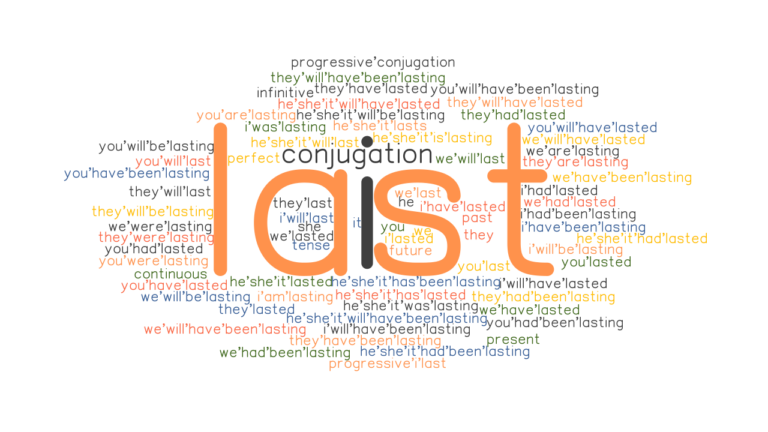The Last Name Whitaker - Unpacking Its Story
Have you ever wondered about the story behind a family name? It is, you know, a bit like looking at an old map, where each marking tells a tale of where people lived, what they did, or even how they appeared. Family names, like the one we are looking at today, can give us little glimpses into the past, connecting us to folks who walked the earth long ago. We are going to take a closer look at the name Whitaker, a family tag carried by many, and try to see what it tells us about its beginnings.
This particular family name, Whitaker, has a history that reaches back to the old lands of England and Scotland, too it's almost like a little piece of history tied to each person who has it. It seems to have sprung up from specific spots on the map, places that had some sort of defining feature. These kinds of names, the ones that come from a location, are quite common when you think about how people first started to pick out their family tags.
The name Whitaker, you see, carries a couple of possible meanings, each giving a different idea of what it once described. One idea points to a kind of field, a "white acre," while another suggests something about a person's look or even a specific kind of tree. It is, basically, a name with a few layers, which makes its background rather interesting to consider, don't you think?
Table of Contents
- Where Did the Last Name Whitaker Get Its Start?
- What Does the Last Name Whitaker Mean?
- How Did People Get the Last Name Whitaker?
- Is the Last Name Whitaker Common?
- Why Check on Your Last Name Whitaker?
Where Did the Last Name Whitaker Get Its Start?
The family name Whitaker, like so many others, has its beginnings in certain places, mostly across England and a little bit into Scotland, too. It is, basically, a "habitational" name, which just means it came from a specific spot where someone lived or worked. Think of it this way: if you lived by a big oak tree, you might have been called "John by the Oak." Over time, "by the Oak" could become your family's lasting tag. That's sort of what happened with the last name Whitaker.
There are a few particular spots on the map that seem to be the starting points for this family name. One of these is a place called Whitacre, which is over in Warwickshire. Another is High Whitaker, located in Lancashire. There's also just Whitaker in Yorkshire and other parts of Lancashire. These places, you know, were likely small settlements or distinct areas that people recognized. When someone moved away from one of these spots, they might have been known by the place they came from, and that became their family name. It's a rather simple way that many family names came to be.
So, the people who first carried the last name Whitaker probably had some connection to these specific locations. Maybe they were the first ones to clear the land there, or perhaps they owned a piece of property in one of these areas. It's a way, you see, that places can give a lasting mark to families, linking them through the generations to a certain piece of ground. This connection to a physical spot is a really common way that family names began to stick with people.
The Old English Roots of the Last Name Whitaker
When we dig a little deeper into where the last name Whitaker truly comes from, we find ourselves looking at some very old words. The name, you know, gets its shape from Old English. That's the language spoken in England a long, long time ago, before what we speak today. The two main parts of the name are "hwīt" and "æcer."
"Hwīt," as a matter of fact, is an Old English word that means "white." You can see how it sounds a bit like our modern word "white," can't you? This part of the name probably pointed to something that was light in color, or perhaps even bright. It could have been a field covered in snow, or maybe one where pale flowers grew, or even a piece of land with light-colored soil. It's just a way of describing something visually, really.
Then there's "æcer," which in Old English meant "field." This word is also pretty close to our modern word "acre," which we still use to talk about a piece of land. So, when you put "hwīt" and "æcer" together, you essentially get "white field" or "white acre." This tells us a lot about the kind of place that would have given someone the last name Whitaker. It was, apparently, a field that stood out because of its color. This is a very direct way that names could describe a person's surroundings.
This Old English background is quite important, you know, because it shows how closely tied family names are to the language and everyday life of people from centuries ago. They weren't just made up; they were descriptions that made sense to everyone at the time. The very sound of the last name Whitaker carries with it a little echo of that old language and those ancient fields.
What Does the Last Name Whitaker Mean?
So, we've talked about where the last name Whitaker comes from in terms of places and old words. But what does it actually mean, you know, in a way that helps us picture the first people who carried it? Well, it turns out there are a couple of main ideas about what this family name truly signifies. It's not always just one simple answer when it comes to old names, which is kind of interesting.
"White Acre" - A Place of Its Own
The most widely accepted meaning for the last name Whitaker, you see, comes from those Old English words we just discussed: "hwīt" for "white" and "æcer" for "field." So, when someone was given the name Whitaker, it literally meant they were from a "white acre" or a "white field." This could have described a few things, actually.
Perhaps it was a field that was often covered in snow during the colder months, making it appear white for a good portion of the year. Or, it might have been a field where the soil was very pale, almost chalky, giving it a light color that stood out from the darker earth around it. It's also possible, you know, that this "white field" was known for a specific crop or type of plant that had white flowers or leaves, making the area look distinctly light. For example, fields of flax, which produce pale blue flowers and light-colored fibers, might have been called "white fields" in some areas. This is, in a way, a very practical meaning, tied directly to the land.
This meaning really highlights how much people's lives were connected to the land back then. Your family name, for many, was a direct reference to your home or the piece of ground you worked. The last name Whitaker, in this sense, basically paints a little picture of a specific landscape, a bright spot in the countryside that someone called their own. It's a simple, yet powerful, way to mark a family's beginnings.
Other Meanings for the Last Name Whitaker
While the "white acre" idea is pretty strong, there are, you know, a couple of other thoughts about what the last name Whitaker might have meant. It's always good to look at all the possibilities, as names can sometimes have more than one root. These alternative ideas also point to Old English, which is a good sign that we're still in the right historical period for this name.
One idea suggests that the name might have come from the Middle English given name "Whit." This name, you see, meant "white," and it was often given to someone who had fair skin or light hair. So, a person with the last name Whitaker might have been known for their pale complexion. It's a way, you know, that names could describe a person's physical appearance, which was another common way to tell people apart in smaller communities. This is, in some respects, a very personal meaning for the name.
Another thought connects the last name Whitaker to "hwit," meaning "white," and "ac," meaning "oak." If this is the case, then the name could have originally referred to someone who lived near a white oak tree, or perhaps a stand of oak trees that had a particularly light bark. Oak trees were very important in old times, for building and for fuel, so living near a special one would certainly be a way to identify someone. It's a bit like being "John by the Big Oak." This meaning, you know, also links the name to a specific natural feature, just a different one than a field.
So, you see, the last name Whitaker isn't just one simple thing. It carries a few different possible stories within it, each one giving us a little piece of what life was like when these names first started to stick. It's really quite fascinating to think about how these old words and places shaped the family names we have today, isn't it?
How Did People Get the Last Name Whitaker?
Thinking about how people first got the last name Whitaker, or any family name for that matter, helps us picture life in earlier times. Back then, you know, most people just had one name, like John or Mary. But as towns grew and more people lived close together, it became a bit hard to tell everyone apart. If there were five Johns in one village, how would you know which one you were talking about? This is where extra tags, like family names, started to become really useful, actually.
For the last name Whitaker, the process was pretty straightforward. As we've discussed, it was often tied to a place. So, if a family lived near or on a "white field," they might have been called "John of the Whitaker" or "Mary of the Whitaker." Over time, that "of the" part often dropped away, and the place name itself became the family's lasting tag. This is how many "habitational" names, like Whitaker, came into being. It was a very practical way to identify people based on where they lived, which was, you know, a very important part of their identity back then.
Sometimes, too, a family name might have stuck because of a person's job, or what they were good at, or even a personal trait. While the last name Whitaker seems to lean heavily on location, it's worth remembering that these other ways of getting a name were also happening. But for Whitaker, it seems the land itself was the most powerful identifier. People moved around less, so being from a specific spot was a really strong way to tell who someone was. It's quite simple, really, when you think about it from that perspective.
So, essentially, the first people to carry the last name Whitaker were likely linked to a particular piece of land that had a "white" quality to it. This connection was strong enough to become their family's enduring identifier, passed down through the generations. It's a clear example of how everyday life and geography shaped the very names we carry today, which is, you know, pretty neat.
Is the Last Name Whitaker Common?
When we look at the last name Whitaker, it's pretty interesting to think about how many people carry it today and where they live. You know, some family names are super common, like Smith or Jones, while others are quite rare. The popularity of a family name can tell us a little bit about how many families started with that name, and how much those families moved around over the centuries. For the last name Whitaker, it seems to have a good presence, particularly in certain areas.
While I can't give you exact numbers right now, it's clear that the last name Whitaker has spread quite a bit from its English and Scottish beginnings. There are, apparently, many people with this family name across different countries, especially where folks from England and Scotland settled over time. For example, in places like North Carolina, Kentucky, or Tennessee, you can see that the last name Whitaker shows up quite often. This suggests that families carrying this name were among those who moved to these areas, establishing new roots.
The fact that there are already many users and thousands of family profiles with the last name Whitaker on big genealogy sites, you know, really shows that it's a name with a notable history and a wide reach. It means a lot of people are curious about their own connection to this family tag and are tracing their family lines. This kind of widespread presence suggests that the original "white fields" or "white oaks" that gave the name its start must have been home to quite a few early families who then had many descendants. It's, basically, a family name that has certainly made its mark.
So, while it might not be the most common name out there, the last name Whitaker is definitely not rare. Its presence in various places, and the sheer number of family trees being built around it, tell us that it's a name with a long and active history. It's a name that has, you know, traveled quite a distance from its early beginnings in those English fields.
Why Check on Your Last Name Whitaker?
You might be wondering, you know, why bother looking into the story of your last name Whitaker? What's the point of digging through old records and meanings? Well, it's really about finding out a little more about where you come from. Your family name is a tiny piece of your personal history, a thread that connects you to generations of people who came before you. It's, basically, a way to feel a bit more connected to the past.
Learning about the origins of the last name Whitaker, for example, can give you a new appreciation for the people who first carried it. You get to imagine them living by those "white fields" or perhaps having fair skin, and it makes them feel a little more real. It's like finding an old photograph of someone you didn't know you were related to – it just adds another layer to your own story. This kind of personal discovery is, you know, quite rewarding for many people.
Plus, looking into your family name can sometimes open up bigger questions about your family's journey. Where did they move? What did they do? What were their lives like? The last name Whitaker might lead you to old birth papers, marriage records, or even census reports, which can paint a much bigger picture of your family's path through time. It's a pretty fascinating way to spend some time, honestly, seeing how your family fits into the larger human story.
So, whether your last name is Whitaker or something else, taking a little time to look into its background is, in a way, a small act of self-discovery. It's about understanding a piece of who you are by seeing where your family's story truly began. It's just a simple way to connect with history, and that, you know, can be really meaningful.

Opposite wordcard for first and last 455875 Vector Art at Vecteezy

Last Past Tense: Verb Forms, Conjugate LAST - GrammarTOP.com

Last Past Tense and Past Participle Verb Forms in English